The right way to tell people you're available for work!
LinkedIn Colleague Gail wrote and essentially was asking me, what is the best way to advertise or let others know in the scientific community that she was available for work, short of spamming people with a link to her CV. Here’s her note.
I have an HTML CV now what I do with it?
Aside from putting it up as a website I don’t know how to get the right people (the hiring managers, HR, recruitment people) to see it unless I post up a message on Linkedin in twice a day, or tweet it as a link every couple of hours.
I guess I’m kind of nervous that people will be fed up seeing the same message repeated. Any advice as to whether my fears are founded. Should go ahead and tweet away? Is there another route I can make sure people know my experience, skills, and that I’m available?
No, Don’t Spam!! Instead…Participate, Volunteer, Contribute
You are right, “advertising” your resume several times a day is NOT a good approach. What you need to do is actively PARTICIPATE in and with the community of people that you want meet. It’s like asking someone to marry you before you’ve even gone on a first date.
Think of networking like dating. You need to first scope out people you want to talk with. Then once you find them, you need to initiate conversations and impress them with your charm. Networking is really not that different. Dating in networking terms means participating means actively in your professional community. Try answering question on LinkedIn, posting questions on linkedin, setting up a blog on nature network, create a community for like-minded professionals, volunteering at events in your local associations, participate in national associates (online and offline), go to industry conferences, etc.
The idea is that you need to be REGULARLY participate, connect and engage with other professionals throughout your career. You need to start early, as early as high school! Then, when it comes time to find a job, you ALREADY have established relationships.
The main idea is that you need to invest FIRST. Then,later, you can draw from the well. If you don’t first invest, the well will be dry!
What I mean is, you need to build trust and likability first by freely giving your time and information. Then when you are in need of help, the help will be offered to you naturally.
However, many people end up in the situation you are in. They didn’t understand the importance of networking and find themselves in immediate need of a job and don’t have an established network to go to.
In this case, the best approach is to create a “hit” list of the people you want to meet. Then figure out where they hang out (both online and offline) and start participating directly with them. It takes some research, but it is worth the effort because you will be engaging people you already know might be able to help you. But, again, you need to think about how you can help them first!
In your field, scientific research, you’ve got many places to interact with others in your area. Here’s a very long list (some of which apply and some that don’t exactly, but I know many scientists researchers come to my site so I thought I would include others for those that are lurking.).
Learn More
Of course, I have to also put in a shameless plug for my book, Ace Your Interview. I talk more about this very topic in my book. You can purchase it in audio form from Macmillan Audio (Amazon or Audible) or in e-book form from Smashwords. (You can get a free chapter of Ace Your Interview here.) Oh and in my new book, due out in 2012, I have chapters on gaining attention and deepening connections because this is a very common problem.
In your case, Gail, you are in the scientific biomedical researcher community so I looked to find a comprehensive list of communities that might be a good fit for you. Thanks to Scienceroll for providing this very comprehensive list.
- ResearchGATE: Registered users of the free-of-charge platform can present their research work in a personal profile, exchange messages and build groups for peer-to-peer discussions (more).
- Nature Network: Nature Network is the online meeting place for you and fellow scientists to gather, talk and find out about the latest scientific news and events. Science is an international endeavor and deserves a global stage for discussion.
- SciLink: an online community with the goal of helping you to discover scientists, authors, and relationships (more).
- SocialMD: SocialMD is a great new way to network with other physicians. Whether you are a medical student, resident, fellow or physician you will find that SocialMD is a great way to meet and network with other medical professionals (more)
- DoctorsHangout.com: DoctorsHangout.com social network can help you maintain existing personal and professional relationships and establish new ones by reaching out to Doctors you’ve never met before (more).
- Jeff’s Bench: Students and post-docs need to be able to have more of these interactions. We hope this site will be used to foster those interactions.
- BiomedExperts: the first literature-based scientific social network – brings the right researchers together and allows them to collaborate online. Collexis provides the BiomedExperts social network free of charge for researchers worldwide in an effort to increase collaborative biomedical research for the common good.
- SciBook in Facebook: Social Networking for Life Scientists
- Ozmosis: a new community, currently in private beta, created by physicians for physicians. Members have to be verified during the registration process (more).
- Sermo: We are a practicing community of 65,000 physicians who exchange clinical insights, observations, and review cases in real time — all the time.
- Tiromed: Ask a mentor or become a mentor. Upload your CV and find collaborators from around the world, or find a job via this community.
- LabSpaces: a brand new social network that was developed to spread scientific news, maintain and create friendships, and harbor collaboration in the sciences.
- Research Crossroads: Centralizing scientific and medical funding data so that researchers gain recognition for their work and funders make better investments.
- Mendeley: If you deal with academic knowledge, then Mendeley will make your life easier. It’s a combination of desktop software and social network which helps you manage, share and discover both content and contacts in research. It’s easy to use, and it’s free.
- Within3: Within3 is the private professional networking site exclusively for health and life science practitioners to find, connect and collaborate with the right colleague, right now.
- MyNetResearch: Our purpose is to assist you in maximizing your research productivity through global collaborations. We all have outstanding colleagues, yet have felt the disappointment of these colleagues not sharing our research interests and passions.
- Scientist Solutions: Scientist Solutions is a life sciences discussion board run by scientists for scientists with the mission to connect every scientist in the world. This site is moderated by a team of scientific staff. It is our hope that Scientist Solutions will encourage the exchange of information between investigative researchers and thereby contribute to the advancement of Science.
- ScienceStage.com is a virtual conference room, lecture hall, laboratory, library, and meeting venue all in one. It offers new methods of scientific presentation, scientific discourse and academic knowledge transfer by using video streaming, audio streaming and text features.
- Academia.edu: It displays academics around the world in a tree format, according to what university/department they are affiliated with.
- Doc2doc: doc2doc has a range of tools to help you network with other doctors on a professional and social level.
Sciweavers.org is a free academic social network that enables researchers (scholars, scientists, graduate students, …etc) to Share, Discover, Learn, and Discuss academic contributions and research materials such as publications, source code, presentations, tutorials, lecture notes, books, datasets, research news, and much more!.

LabRoots is a free, social networking site that enables scientists, engineers, and other technical professionals to connect, collaborate with, and learn from each other. LabRoots fosters world-wide scientific communication and incorporates the newest social networking technologies.

BioCrowd was created to help bioscience professionals build relationships, exchange ideas, find jobs and identify exciting new career opportunities. Whether you are a bioscientist, investment banker, entrepreneur or a student, be part of the BioCrowd.

Centralize and be found. One can not collaborate with the unknown. Join our free community. Describe yourself, your product, your blog, your service and/or your mission.

- LaboraTree: a social networking tool for scientists and a research management tool. Laboratree allows you to grow your network by joining up with various colleagues, groups, and projects. Laboratree allows you to e-mail or send messages to all parts of your network. Laboratree allows you to manage a personal or group blog. Laboratree’s latest feature allows you to share papers, documents, and other files with other people on Laboratree.
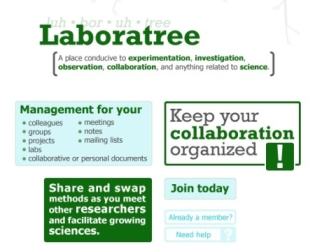
- BioSpace is a social network in biology. It provides the necessary functionality to allow you to share information between people (within group, friends)
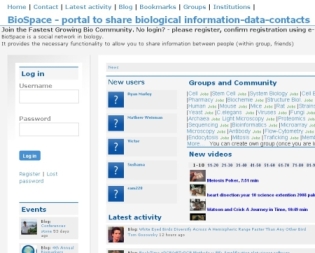
- Researcher ID is a global, multi-disciplinary scholarly research community. With a unique identifier assigned to each author in ResearcherID, you can eliminate author misidentification and view an author’s citation metrics instantly. Search the registry to find collaborators, review publication lists and explore how research is used around the world.

- PHYZOOM: you can find the physicians in your community who are staying on top of the latest health trends, products and services. In addition, your search options are much more dynamic than your average physician directory available from your local hospitals and health systems.

- The Science Advisory Board: Voice your opinions on companies, products, protocols and even humor in a lively, real-time, interactive Online Community of over 42,000 life science & medical professionals. Redeem generous rewards for participation in studies, contributing website content and referring colleagues.

- MySDscience: Scientific collaborations, professional development, and science education while raising awareness for the San Diego Science Festival.

- Web of Medicine: it was created for busy clinicians who want to build and join professional networks of medical colleagues. Users have expressed a clear requirement to connect with colleagues in their own practices and hospitals but also nationally and internationally.

- New Media Medicine is an online Social Network of over 42,000 doctors, medical students and pre-med students. It’s like Facebook for medics.

- Asklepios: the social network for physicians created by the Canadian Medical Association. Here you can make new contacts, get advice from colleagues, and collaborate with people all over the country. And it’s exclusively for Canadian physicians, residents and medical students, so you’ll know exactly who you’re connecting with there.

- Doctrs.com: It’s an exclusive social net for physicians that was founded by Michael Kamleitner and Lukas Zinnagl in 2008, according to the FAQ page.
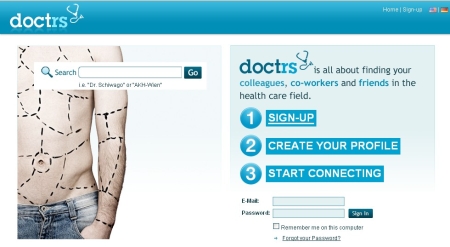
- SleepGuide: If you or a loved one have sleep apnea, you probably (i) don’t know it, or (ii) have had trouble with the treatment. This forum can help.
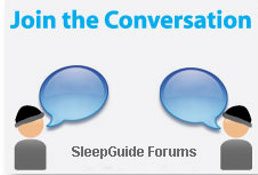
- Voices of Physicians: Voices of Physicians is a new campaign from Doctors for America that puts physicians’ concerns and priorities for health reform on a national map.

- Sci-Mate: The Sci-Mate (Scientific Material Transfer Exchange) is an open collaboration to address well known problems in academic publishing and commercial development using proven Web 2.0 software solutions.

- Scientist Solutions: Scientist Solutions is a life sciences board run by scientists for scientists. As such, Scientist Solutions is moderated by a team of full time scientific staff in order to maintain the integrity of our board for the sole purpose of scientific discussion and networking.

- iCons in Medicine: iCons in Medicine is a global telehealth and humanitarian medicine volunteer alliance. This network of medical professionals is committed to making the world a healthier place.
![]()
- Osler’s Node: Osler’s Node is a classified portal and ethical marketplace for the UK medical community.
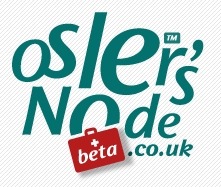
- Scitable: A free science library and personal learning tool brought to you by Nature Publishing Group, the world’s leading publisher of science.
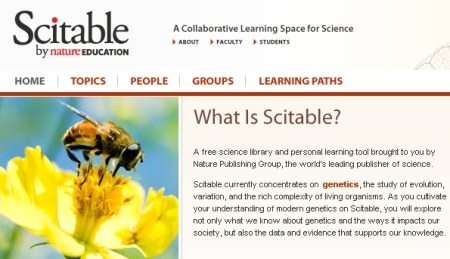
- Benchfly: BenchFly.com is an interactive resource for scientists dedicated to supporting and celebrating the researcher’s life at the bench. BenchFly provides a sharing platform, tools and insider knowledge to perpetuate the viability of the craft and keep scientists in science. Founded in 2009 by an MIT post-doc, Dr. Alan B. Marnett, BenchFly.com is privately held and headquartered in Cambridge, Massachusetts.

- Labslink: LabsLink.com is the scientific and highly effective platform dedicated on high-quality and innovative research collaboration around the world. The programs and services of the LabsLink.com foster the exchange of knowledge, new ideas or technology among scientists.

- Lablife: Organize data and materials, coordinate purchasing, analyze sequences, and more
with LabLife’s web-based tools.

- VIVO: The national network of scientists will facilitate the discovery of researchers and collaborators across the country. Institutions will participate in the network by installing VIVO, or by providing semantic web-compliant data to the network.
- Orwik: The innovation life-cycle is equal parts funding, team work, and publishing. Orwik helps you along the way by enabling collaboration management, and community development.
- Sciyo.com: you can read, download and share thousands of free articles from exclusive Sciyo scientific journals and books database.
- Science 2.0: The idea of this place though, is a fluid evolving site, where users can suggest, edit or contribute in any way they wish.
- Do-Surgery.com is intended as an e-learning and e-sharing resource for orthopaedic surgeons.
- SciFlies is a new model for funding scientific research that allows the general public to get involved in scientific research by making small donations resulting in financing research for projects just waiting to prove new ideas that work, but just lack the funding to get started.
- medCrowd enables you to find the best solution for your patient by collecting your peers’ professional opinions, simply and in one place. This is called crowdsourcing.
bevalley is a global network where healthcare professionals and organizations share medical facts and the ways they use them. It includes several applications to work with data, such as analysis tools and graphical representations. bevalley is free of charge and grows in a controlled way through an invitation system. Each user has a limited number of exclusive invites to the network. If you already know some users in bevalley, ask them to invite you!
Vivu: a network of professionals and users that care about our health and wellness.
- MDSNe is a free social networking and peer-to-peer learning community for verified healthcare professionals based in Europe.
MedCrowd: Market Research and Insight: Solve problems by collaborating directly with diverse healthcare experts
VoxMed: VoxMed is the worldwide online community reserved for the medical profession.
Sequilab: a leap forward for genetic researchers using online bioinformatics tools.
- Doctors Global: Doctors Global intends to facilitate physicians to collaborate across all boundaries, to share views, experience and learn new things from colleagues across the world every day in a secure environment.
- Comp’act Onair: An evidence-based practice bases clinical decisions on the best available evidence.

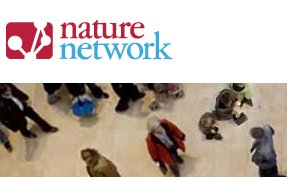
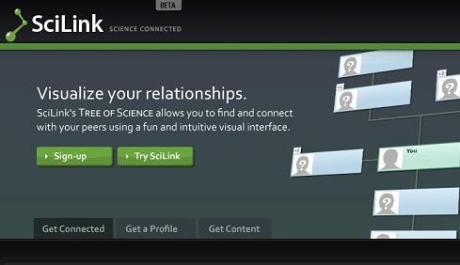

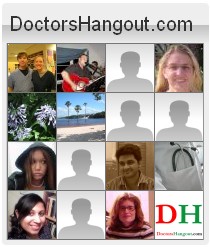



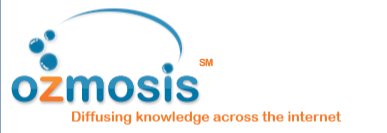
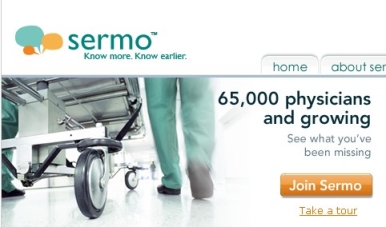
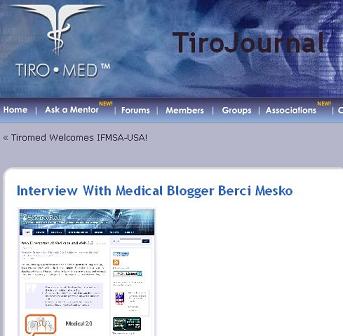








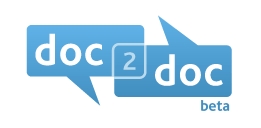





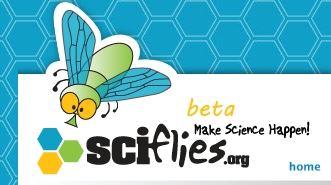
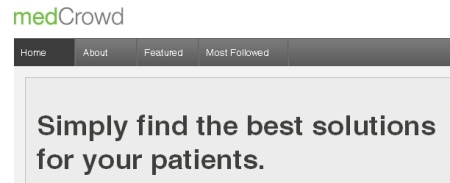



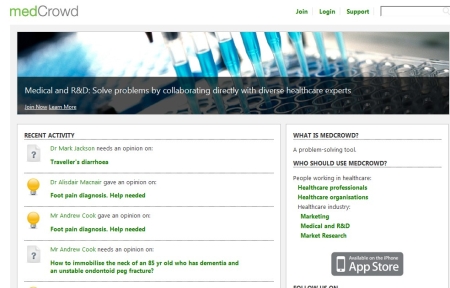















http://friendfeed.com/rooms/the-life-scientists